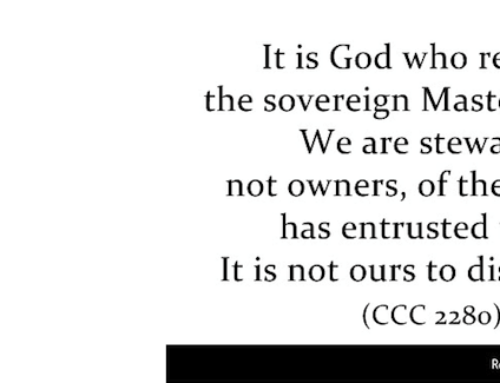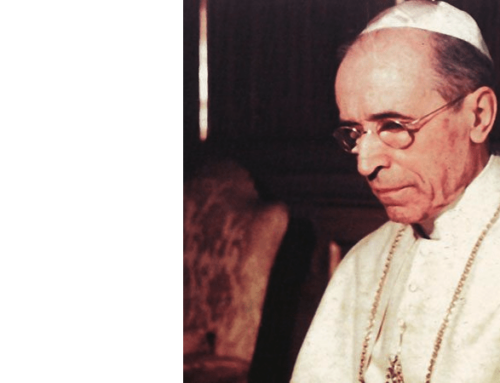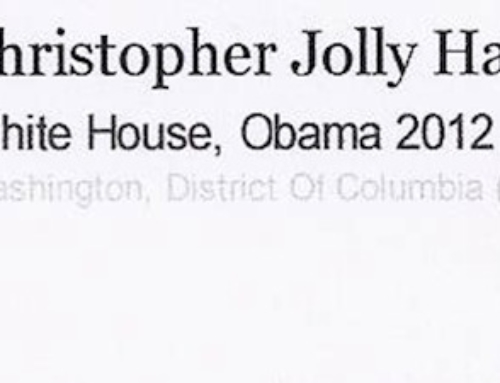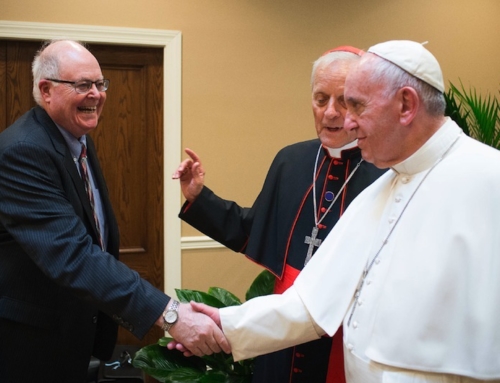Reviewed by Bill Donohue
June 2008
ROOT CAUSES OF HAPPINESS
Q: “Mirror, Mirror, on the Wall, Who is the Happiest of Them All?”
A: You are.
That’s right, in general, those who are the most likely to be reading this article are the happiest of them all. The obverse is also true: The odds are that those who would never read anything associated the with Catholic League are the most unhappy of them all. This isn’t poppycock, and it isn’t being said to make you happy. It just happens to be true.
Happily, Arthur C. Brooks provides us with all the evidence we need to make these assertions. The Syracuse professor of Business and Government Policy has given us another brilliant book, Gross National Happiness, that is as enlightening as it is fun to read. It is worth noting, too, that Brooks is a proud Roman Catholic.
Brooks is one of those rare birds in academia—he actually draws his conclusions from the data. And data he has: Brooks has scoured the social science research on the subject of happiness and has turned up some extraordinary findings.
To be sure, there is nothing extraordinary about learning that optimists are happier than pessimists, or that those who have many friends are happier than those who do not. But it may come as a surprise to find out that money by itself doesn’t buy happiness (success and peer recognition do matter). What is truly surprising is the extent to which at least half of our happiness stock is genetic: Nature plays at least as big a part as nurture in determining our level of happiness.
These findings are interesting, but what really makes Brooks’ volume so important, especially for Catholic League members, is his sociological insights: he identifies a constellation of social attributes, as well as ideological predilections, that are clearly linked to happiness.
It is hardly a risky bet to claim that the typical Catholic League member is a religious person of conservative values who prizes his family. Nor is it a risk to say that he enjoys working hard (or did so before retirement) and is known to be generous. Well, it is precisely those characteristics that Brooks identifies as being integrally related to happiness.
This would seem to suggest that our secular brethren who espouse a liberal ideology are nowhere near as likely to be as happy as we are. This is exactly what Brooks found. Moreover, secularists are also much less likely to be generous—both with their money and their time. Married persons are happier than singles, and the former make for much better parents than do cohabiting couples. And as critical as any variable, those who ascribe to a traditionalist understanding of morality are happier than those who reject it.
So here we have it: religious people are happier than secularists; conservatives are happier than liberals; those who volunteer are happier than those who don’t; those who are charitable are happier than those who aren’t; married persons are happier than single persons; those who work the hardest are happier than everyone else; and traditionalists are happier than the “free spirits.”
Brooks lays all of this out in great detail, and he explores the public policy implications of his findings, e.g, it is in everyone’s interests that we protect our religious heritage. Why? Quite simply, religious persons make for better citizens: they give more and are much more likely to be happy.
As Brooks writes, “it is not just in the interest of religious folks to protect our religious traditions, but also in the interest of secularists.” (His italics.) That’s a hard nut for secularists to swallow, but the fact is that they are benefiting from the moral capital (and its ensuing happiness quotient) of the faithful.
A question that Brooks does not directly address, but is worth considering, is whether there is a commonality that runs through the “happiness” variables? To simplify this matter, consider the following bipolar variables: married v. single; religious v. secular; giver v. non-giver; conservative v. liberal; traditionalist v. postmodernist. Why are the former variables associated with happiness and not the latter?
There is a mountain of psychological and sociological evidence that suggests that fully atomized individuals are positively dysfunctional. Put differently, those for whom the unencumbered self is the end all and be all of liberty are sick. It cannot be said too forcefully: The lone individual is a nightmare. Why? Because part of being human is the ability to connect ourselves to something greater than ourselves, which is why those who find communion with God, family and friends are freer than those who refuse to submit to moral codes.
The idea of surrendering oneself to God and loved ones is not something which resonates well with those for whom submission is a dirty word. Religious persons, especially Catholics, know exactly what Pope John Paul II meant when he said that the Ten Commandments were the foundation of liberty. But to the tin ear of the secularists, such notions are incomprehensible at best and downright dangerous at worst.
In any event, Brooks gives us much to think about, and he does so in a style that is as entertaining as it is educational.
Please see below for some of Professor Brooks’s most insightful comments:
- “Your state of mind is due in significant part to the wiring you get from your parents.”
- “Happy people treat others better than unhappy people do. They are more charitable than unhappy people, have better marriages, are better parents, act with greater integrity, and are better citizens. Happy people not only work harder than unhappy people, but volunteer more, too—meaning that they increase our nation’s prosperity and strengthen our communities. In short, happy citizens are bettercitizens.”
- “Religious people of all faiths are much, much happier than secularists, on average. In 2004, 43 percent of religious folks said they were ‘very happy’ with their lives, versus 23 percent of secularists.”
- “People who live in religious communities—even correcting for other cultural factors in these communities—do better financially than those who live in secular communities.”
- “Traditionally religious people do not tend to be ignorant or uneducated. Religious individuals today are actually better educated and less ignorant of the world around them than secularists. In 2004, religious adults—those who attended a house of worship every week—were a third less likely to be without a high school diploma, and a third more likely to hold a college degree or higher, than those secularists who never attended a house of worship.”
- “Religious people are 38 percent more likely than secularists to give money to charity and give about four times more money away each year (even holding incomes constant). They are 52 percent more likely than nonreligious people to volunteer. Religious people are even 16 percent more likely than secularists to give money to explicitly nonreligiouscharities, and 54 percent more likely to volunteer for these causes.”
- “Religious Americans create much larger families than secular Americans do, and religious parents tend to have religious kids.”
- “In 2004, 42 percent of married Americans said they were very happy. Only 23 percent of never-married people said this, as well as 20 percent of those who were widowed, 17 percent of divorced people, and 11 percent of those who were separated (but not divorced) from their spouses. Married people were six times more likely to say they were very happy than they were to say they were not too happy.”
- “The evidence is overwhelming that unmarried, cohabiting adults give children a worse home life than married parents do, on average.”
- “Secular liberals are about eight times likelier than religious conservatives to support abortion on demand, which may indicate a greater willingness to terminate an inconvenient pregnancy.”
- “Religious people feel freer than secularists.”
- “Those who favor less government intervention in our economic affairs are happier than those who favor more.”
- “More than just enjoying the freedom to worship as they choose, many of the happiest people in America achieve their happiness throughtheir faith.”
- “Premarital sex, drug use, you name it—the moral traditionalists have it all over the moral modernists when it comes to happiness.”
- “The recipe for happiness is a combination of individual liberty, personal morality, and moderation. This age-old formula is overwhelmingly supported by the data.”
- “‘Very happy’ people work more hours each week than those who are ‘pretty happy,’ who in turn work more hours than people who are ‘not happy.’”
- “Job satisfaction actually increaseslife happiness.”
- “Work also brings happiness because it gives our lives meaning—and meaning brings happiness, sooner or later.”
- “People who give charitably are happier than people who don’t.”
- “America was built as a nation of givers. Religious pilgrims were some of our earliest ancestors. Thousands of miles away from their homes and governments, they were confronted by a vast frontier that could only be managed if private individuals took the needs of their community into their own hands. This has led to the simple and enduring fact that no country gives and volunteers privately like America does. This fact is more than just a curiosity or source of national pride. It is part of the reason we are generally happier than people in other developed countries.






